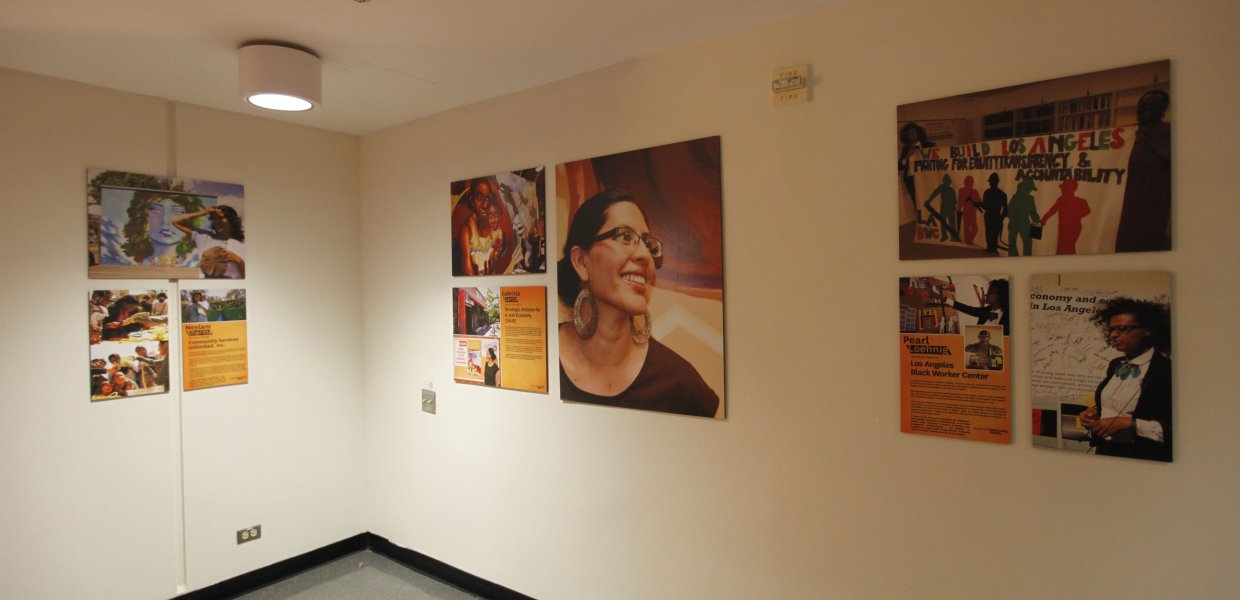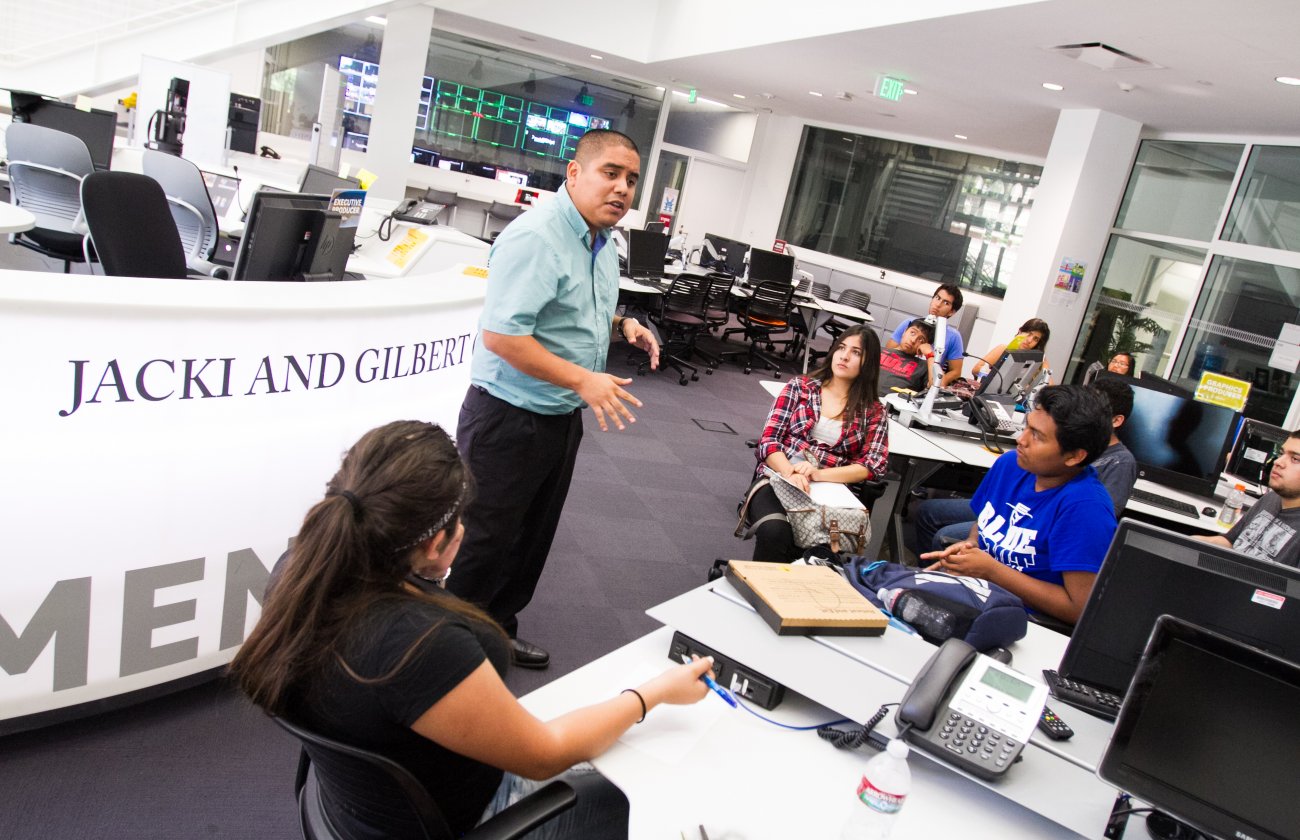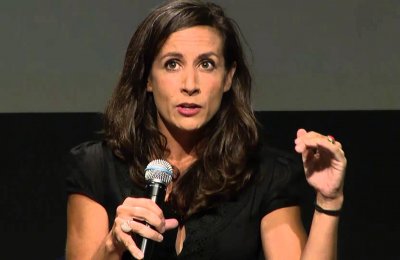A new collaborative, multimedia storytelling investigation from USC Annenberg paints a new picture of South Los Angeles by revealing 15 unique public spaces that embody the community’s push for social change.
Leaders of “Democratic Spaces” aim to show South LA in a new light, through portrait photography and videos that will reveal untold stories of community organizers and their favorite physical spaces for encouraging social change – places worthy of being featured in the public eye. The sites encourage positive social change, promote advocacy efforts, and serve as building blocks for community-based social movements.
As part of the opening reception, the community organizers and advocates will share how their work contributes to making South LA a more democratic place in which residents live and work.
These spaces include the unexpected safety of a food truck, a vibrant community marketplace, historic public art, a small aquarium for children and much more. The goal of the exhibit is to draw a new portrait of democracy in South LA that powerfully counters mainstream narratives that long have stigmatized the area.
The exhibit will be housed at USC Annenberg through December 2012. It will also be available for viewing online here.
At the launch event Sept. 27, the public is invited to meet and talk with more than a dozen of the community advocates profiled in the exhibit. Organizers will distribute maps of the spaces, which are available online. A brief interactive panel discussion (7:30 p.m.) will highlight the significance of the spaces for South LA. Refreshments will be served.
One of the spaces spotlighted in the exhibit is the Mercado La Paloma, selected by Esperanza Community Housing Corporation community organizer Monic Uriarte. “In South Central LA it was almost impossible to get investors to invest in local residents to create local businesses, so Esperanza created Mercado La Paloma to provoke this democratic space,” Uriarte said.
Another space, highlighted by Advancement Project community research lab manager Janice Burns, is the Mafundi mural in Watts. It honors the work of the Mafundi Institute, an institute that Janice explained was important to the history of Watts. “The collaboration of different community members and organizations brought arts and community voice to the rebuilding process after the 1965 Watts rebellion,” she said.
The exhibit also features stories from the L.A. Black Worker Center, CD Tech, Children’s Nature Institute, Community Coalition, Community Financial Resource Center, Community Services Unlimited, LA CAN, Peace Over Violence, SAJE, SCOPE, Trust for Public Land, T.R.U.S.T. South LA, and 24th Street Theatre.
The project is funded by a Cal Humanities Community Stories Grant and is a collaboration between USC Annenberg’s Metamorphosis Project and Intersections South LA -- and their partner community organizations. It is a deliberate effort to promote public scholarship that reaches beyond the university, engages with important social issues in diverse urban communities, and produces creative ways to communicate community research to multiple publics.
South LA Democratic Spaces project director George Villanueva of the Metamorphosis Project said, “We believe the work can help members of the USC neighborhood be responsible community citizens – and be aware of and directly involved in some of the critical social issues that take place here every day.”
South LA Democratic Spaces also represents a form of social innovation by university departments, who seek to not only become relevant to publics outside the university, but also to train university students to apply their research skills and knowledge in real-world urban environments. Communication professor Sandra Ball-Rokeach, who is also the humanities project adviser for South LA Democratic Spaces, said that the project “emerges in part from my graduate curriculum that helps USC students to directly engage with community organizations in L.A. and produce collaborative and participatory research.”
Project organizers are committed to the promotion of alternative news sources that feature local voices and distribute local knowledge. Hyper-local news sites such as Intersections South LA that target local geographic communities can play a vital role in facilitating the flow of information across neighborhood storytelling networks, keeping residents and local governments informed on the important issues in communities.
“It’s important for us to embed ourselves with local community organizations, because local media production has always been crucial to ensuring that democratic movements are received by the eyes and ears of the public,” said Intersections South LA director and journalism professor Willa Seidenberg.
The exhibit will be housed at USC Annenberg from Sept. 27 through Dec. 2012. Afterwards, the physical exhibit will travel to and be archived at local South LA community sites. Additionally, the stories will be mapped online on www.metaconnects.org and the videos will be available at www.intersectionssouthla.org.







